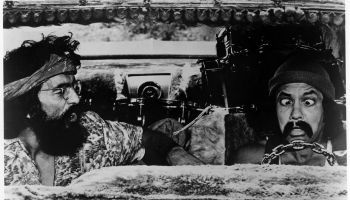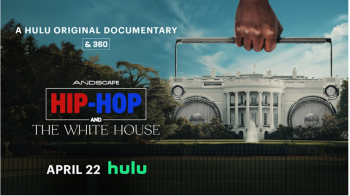In any war, there are casualties.
Of course there are the soldiers who get killed on the front lines, there are civilians who get caught in air strikes, there are prisoners of war who won’t see the light of day for many years to come, and the list goes on. But there is one thing that everyone involved in a war has in common: they all have families.
We each, at the very least, have a mother and a father, though whether or not they are present in our lives or are even alive anymore is a different story. But for every loss of life that comes with a war, there is someone in the world still alive who will be mourning that loss.
The United States’ “War on Drugs,” introduced by former President Richard Nixon exactly forty years ago, unlike the wars in Afghanistan and Iraq which have been at the forefront of Americans’ minds, isn’t necessarily a war which people realize is even still actively being fought. There are no bombs being dropped, no troops are being deployed, and there is minimal continuous media coverage about this war.
But there are certainly casualties of the U.S. war on drugs, and there are certainly people mourning their losses. As men and women sit in prison cells in a system that views incarceration as more efficient rehabilitation than actual drug rehab, and especially with Father’s Day right around the corner as well, it’s important to acknowledge the innocent bystanders of the war on drugs who are suffering: the families who have been ripped apart by the stringent legal penalties laid out to deter the sale and usage of illicit drugs.
[pagebreak]
Hundreds of millions of dollars are poured into the war on drugs annually, but what does the United States have to show for it? There are still drugs in the streets. There are still users, addicts, and drug dealers throughout communities from coast to coast. Even despite international efforts taken on with money allocated for this program, organizations like FARC in Colombia and the Mexican drug cartels are still a menacing problem. Meanwhile, incarceration rates in America have skyrocketed since Nixon coined the term in June of 1971, putting an incredible strain on an already suffering federal budget and imposing severe logistical problems upon an overcrowded prison system.
The FBI reports that one million Americans are arrested annually as a result of the war on drugs, with about 225,000 of those arrests being for marijuana possession. In 2008 alone, 500,000 Americans were imprisoned on drug-related charges. That’s 500,000 American families who will temporarily lose a family member, and 500,000 new inmates who will be fed, housed, clothed, and provided medical care from taxpayer dollars. That’s also 500,000 inmates who will be released in the future, perhaps into a suffering economy with few job opportunities and freshly updated criminal records which limit their opportunities even more. That’s not the solution to the problem, it’s the creation of a problem.
[pagebreak]
Four decades later, in the present, it’s finally becoming widely accepted that the war on drugs has been an overall failure. Fourteen states, now recently including Connecticut due to legislation passed earlier this month, have even decriminalized marijuana – therefore eliminating jail time (and in many cases even an arrest or addition to a criminal record) for usage and possession of small amounts of the drug. A “Day of Action” has been announced on the anniversary of the war on drugs as birthed by Nixon, in order to reassess the nation’s approach to the issue. Reform, at this point, is a necessity. For the sake of users, the favoring of punishment over treatment and prevention needs to change.
The Federal Bureau of Prisons states that the cost of housing a federal inmate in 2006 was $24,440 – far more than the cost of a drug treatment program. Tactics abroad need to be amended as well, in order to prevent the destruction of legitimate crops and farmers’ livelihoods that resulted from the aerial deployment of herbicides (which also present harmful side effects in the population) in areas known for cultivating illicit drugs such as coca (which is also used for religious and medicinal purposes in South American cultures). Corruption within the government is also a large flaw for the war on drugs, with notable scandals within the CIA coming to light detailing their alleged assistance to the Sicilian mafia’s heroin trade in exchange for their assistance in murdering and torturing leftist political figures, or the use of money gained from crack distribution in Los Angeles to purchase weapons. If internal corruption can’t even be prevented, the government won’t be making progress another forty years from now either, unless their approach drastically changes.
[pagebreak]
Though illicit drugs are undoubtedly dangerous, both health-wise and due to the violent and corrupt criminal activity that results from the black market trade of such substances, the decriminalization of the less harmful drugs such as marijuana, reduction in sentences of drug charges including the revision of the RICO laws and “three strikes” laws, and approaching certain offenders with a more realistic view that they need medical help more than they need to be labeled as a criminal and imprisoned will be key in redirecting the war on drugs to an actual successful outcome.
This weekend thousands of American children will be without their fathers on Father’s Day thanks to the war on drugs, as they sit in prison cells thanks to their drug usage, awaiting release to futures of probation restrictions, a struggle to find a job and make a legitimate income, and picking up the pieces of the lives they left behind. There is a difference between a violent drug kingpin and the average drug user, and until the war on drugs can acknowledge the difference between a criminal and someone who needs help, solving the American drug problem will only remain a fantasy.
Amanda Bassa is a Brooklyn-based writer and graduate of George Mason University. She has contributed to various online and print publications throughout the entertainment industry in addition to running her own website.















